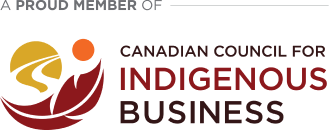
ISO 22274:2013
ISO 22274:2013 Systems to manage terminology, knowledge and content – Concept-related aspects for developing and internationalizing classification systems
CDN $351.00
Description
ISO 22274:2013 establishes basic principles and requirements for ensuring that classification systems are suitable for worldwide application, considering such aspects as cultural and linguistic diversity as well as market requirements. By applying principles relating to terminology work, ISO 22274:2013 provides guidelines for creating, handling, and using classification systems for international environments.
ISO 22274:2013 addresses the need in many domains for classification systems that are concept based to ensure that they are suitable for worldwide use and can be adapted to specific user communities. It provides information about the design, development, and use of classification systems that are fully enabled for diverse linguistic, cultural, and market-based environments.
ISO 22274:2013 primarily specifies the factors that need to be considered when creating and populating a classification system for use in diverse linguistic environments. These factors include the specification of principles for incorporating internationalization aspects into classification systems, and maintaining and using those aspects for the structuring of activities, products, services, agents, and other entities of a company or organization.
The following are within the scope of ISO 22274:2013: a) guidelines on information content to support internationalization of classification systems and their underlying concept systems; b) terminological principles applicable to classification systems; c) requirements for internationalization of classification systems; d) considerations on workflow and administration of classification system content to support worldwide use.
The following are outside the scope of ISO 22274:2013: 1) providing formal data models for representing classification systems in machine-readable form; 2) prescribing classification system content for specific business domains or products; 3) harmonization of classification systems.
ISO 22274:2013 is intended for those who develop content for classification systems. This includes terminologists and content managers who are called upon to apply the principles of terminology work to ensure that cultural and linguistic diversity are appropriately reflected in classification systems. It is also relevant for people who design and model appropriate IT tools.
Edition
1
Published Date
2013-01-15
Status
PUBLISHED
Pages
51
Format 
Secure PDF
Secure – PDF details
- Save your file locally or view it via a web viewer
- Viewing permissions are restricted exclusively to the purchaser
- Device limits - 3
- Printing – Enabled only to print (1) copy
See more about our Environmental Commitment
Abstract
ISO 22274:2013 establishes basic principles and requirements for ensuring that classification systems are suitable for worldwide application, considering such aspects as cultural and linguistic diversity as well as market requirements. By applying principles relating to terminology work, ISO 22274:2013 provides guidelines for creating, handling, and using classification systems for international environments.
ISO 22274:2013 addresses the need in many domains for classification systems that are concept based to ensure that they are suitable for worldwide use and can be adapted to specific user communities. It provides information about the design, development, and use of classification systems that are fully enabled for diverse linguistic, cultural, and market-based environments.
ISO 22274:2013 primarily specifies the factors that need to be considered when creating and populating a classification system for use in diverse linguistic environments. These factors include the specification of principles for incorporating internationalization aspects into classification systems, and maintaining and using those aspects for the structuring of activities, products, services, agents, and other entities of a company or organization.
The following are within the scope of ISO 22274:2013: a) guidelines on information content to support internationalization of classification systems and their underlying concept systems; b) terminological principles applicable to classification systems; c) requirements for internationalization of classification systems; d) considerations on workflow and administration of classification system content to support worldwide use.
The following are outside the scope of ISO 22274:2013: 1) providing formal data models for representing classification systems in machine-readable form; 2) prescribing classification system content for specific business domains or products; 3) harmonization of classification systems.
ISO 22274:2013 is intended for those who develop content for classification systems. This includes terminologists and content managers who are called upon to apply the principles of terminology work to ensure that cultural and linguistic diversity are appropriately reflected in classification systems. It is also relevant for people who design and model appropriate IT tools.
Previous Editions
Can’t find what you are looking for?
Please contact us at:
Related Documents
-

ISO 15944:2009 Information technology – Business operational view – Part 7: eBusiness vocabulary
CDN $0.00 Add to cart -

ISO 19468:2022 Intelligent transport systems – Data interfaces between centres for transport information and control systems – Platform-independent model specifications for data exchange protocols for transport information and control systems
CDN $390.00 Add to cart -

ISO 13143:2025 Electronic fee collection – Evaluation of on-board and roadside equipment for conformity to ISO 12813
CDN $390.00 Add to cart -

ISO 15638:2014 Intelligent transport systems – Framework for collaborative Telematics Applications for Regulated commercial freight Vehicles (TARV) – Part 6: Regulated applications
CDN $312.00 Add to cart







